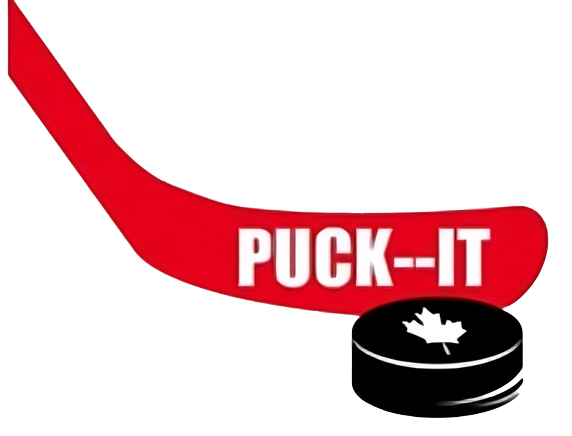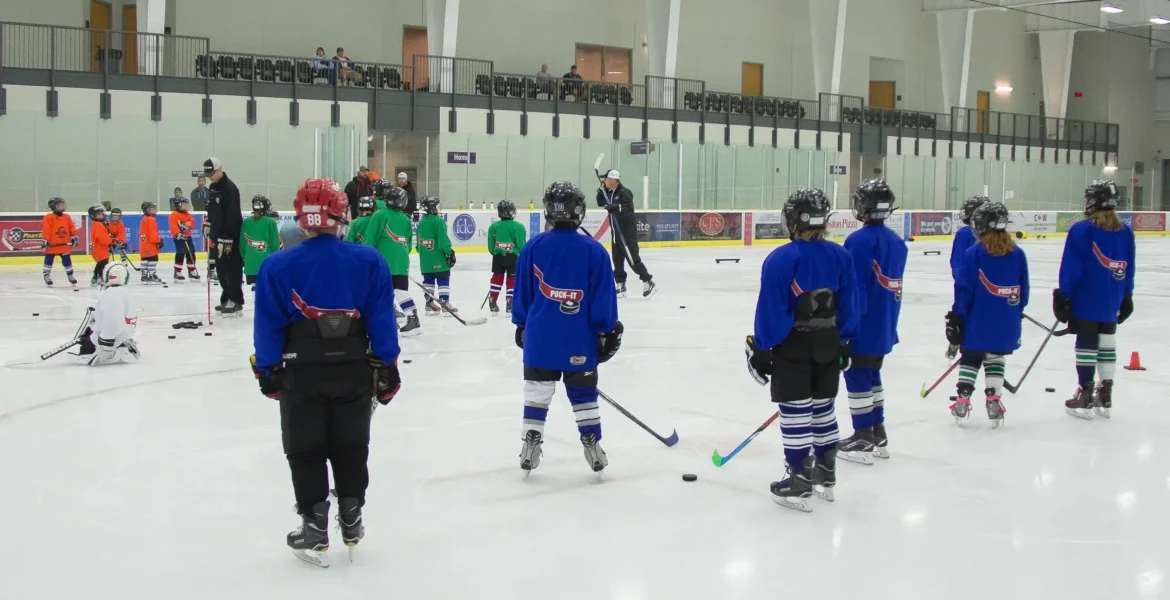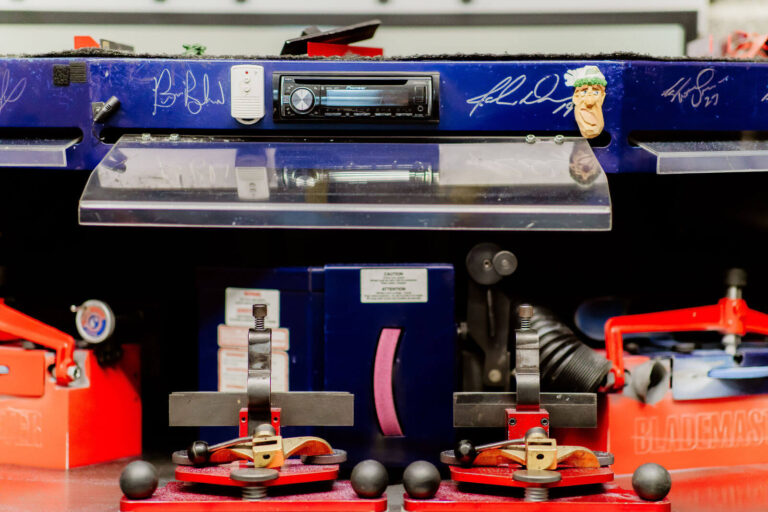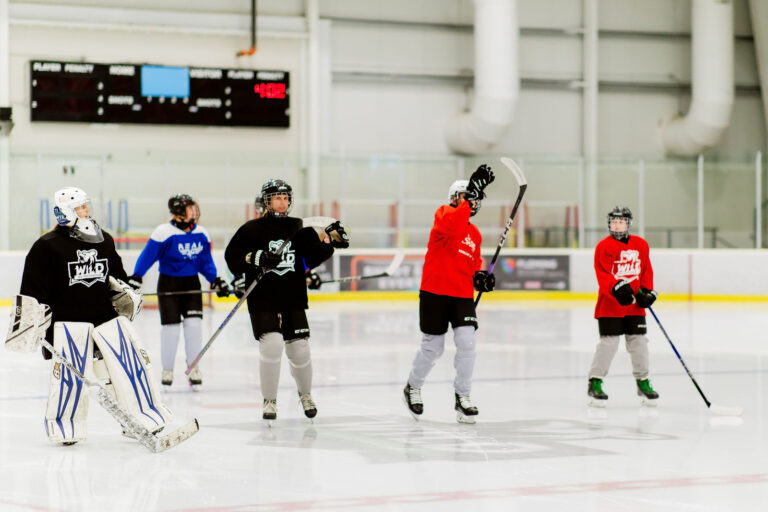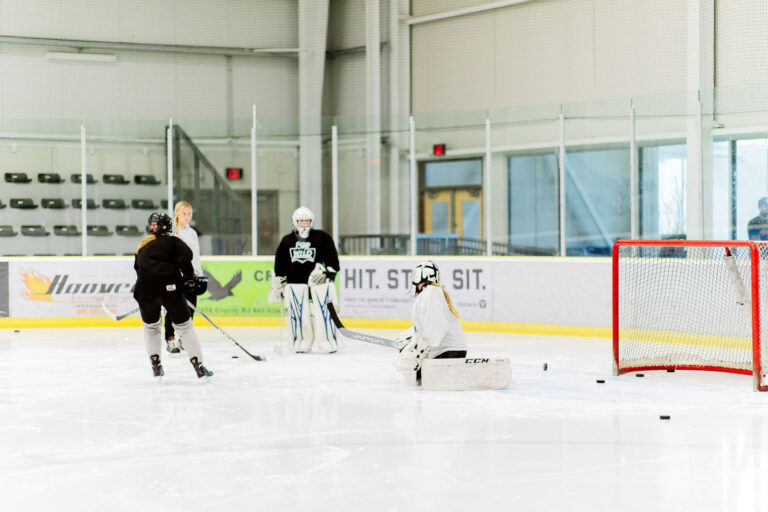Hockey development camps are a fantastic way for players to elevate their skills, improve their game, and gain valuable feedback from top-tier coaches. However, getting the most out of a camp requires more than just showing up with your gear—it involves both mental and physical preparation. Here’s a guide for players and parents to ensure a successful and rewarding camp experience.
1. Set Realistic Goals
- Why It’s Important: Going into camp with clear, realistic goals helps keep players focused and motivated.
- Tip: Before the camp begins, sit down and think about what areas of your game you want to improve. Is it your skating speed? Puck handling? Defensive positioning? Set 2-3 specific goals for the camp so you know what to concentrate on.
- For Parents: Encourage your child to aim for progress rather than perfection. A good goal might be something like “I want to improve my backward skating” rather than “I want to be the best skater in camp.”
2. Mental Preparation
- Why It’s Important: Camps can be intense, and having the right mindset can make all the difference. Mental preparedness is about focusing on learning, growth, and handling challenges positively.
- Tip: Develop a mental game plan. This could include visualizing success in drills, staying positive if mistakes happen, and being open to feedback from coaches.
- For Parents: Support your child by talking through potential anxieties or nerves. Reassure them that mistakes are part of the learning process and that effort and attitude are what matter most.
3. Physical Conditioning
- Why It’s Important: Hockey camps demand a lot of physical exertion. You need to be in good shape to keep up with the pace and avoid fatigue or injury.
- Tip: A few weeks before the camp, ramp up your physical conditioning. Focus on skating, agility, and endurance exercises. Include off-ice workouts such as sprinting, leg strength training, and flexibility routines.
- For Parents: Help your child stay committed to their conditioning. Offer encouragement or join them in a few off-ice activities to keep things fun and motivating.
4. Equipment Care and Preparation
- Why It’s Important: Well-maintained equipment ensures comfort and performance during camp. Ill-fitting or poorly maintained gear can hinder a player’s performance.
- Tip: Before camp, check that all your equipment is in good condition. Make sure your skates are sharpened (or profiled if necessary), sticks are taped, and everything fits well. Pack extra laces, tape, and gear in case something breaks or wears out during camp.
- For Parents: Help your child get their gear ready. Double-check that everything fits properly and is comfortable for them to wear for long periods. Pack extra water bottles and healthy snacks to keep them energized.
5. Hydration and Nutrition
- Why It’s Important: Staying hydrated and fueled is essential for maintaining energy throughout long days of practice and drills.
- Tip: Drink plenty of water leading up to and during camp. Eat balanced, nutritious meals with plenty of protein and carbohydrates to fuel your body for the high-energy workouts.
- For Parents: Pack snacks like fruits, nuts, or protein bars for quick energy boosts between sessions. Encourage hydration throughout the day to avoid fatigue.
6. Be Coachable
- Why It’s Important: Camps are about learning, so being open to feedback and willing to make adjustments is critical.
- Tip: Keep a positive attitude and be ready to take in what coaches tell you. Even if the feedback is tough, view it as an opportunity to grow. Ask questions if you’re unsure about something, and try to apply new techniques or strategies during drills.
- For Parents: Encourage your child to approach the camp with an open mind. Remind them that even top players need coaching and that improvement often comes from stepping outside their comfort zone.
7. Get Plenty of Rest
- Why It’s Important: Hockey camps can be physically demanding, so rest and recovery are key to performing well and avoiding injury.
- Tip: Make sure to get plenty of sleep in the days leading up to camp. During camp, take time between sessions to rest, stretch, and rehydrate.
- For Parents: Ensure your child gets adequate sleep and downtime, especially after long camp days. Help them relax in the evenings with non-hockey-related activities.
Final Thoughts
Hockey camps are an incredible opportunity for development, but players must be prepared to make the most of them. By setting clear goals, taking care of your body, and maintaining a positive attitude, you’ll maximize your time on the ice and leave camp as a stronger, more confident player. For parents, being supportive and involved in your child’s preparation will help them get the most out of this valuable experience.
Good luck and see you on the ice!
